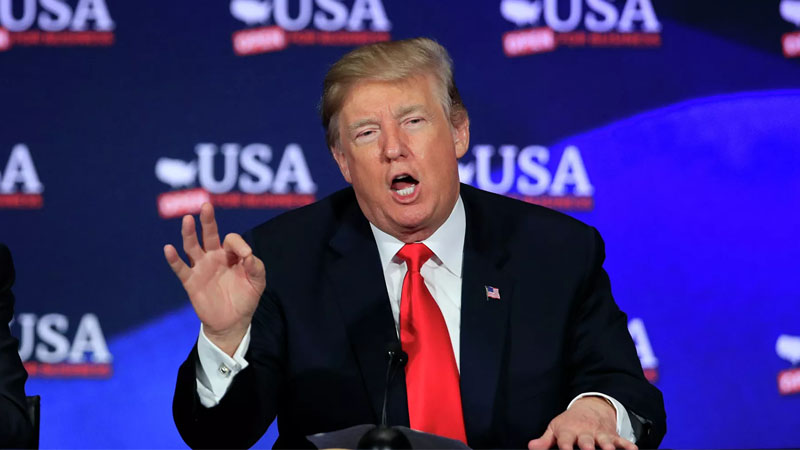Mitch McConnell Warns of Filibuster’s End if Harris Wins: ‘Once You Do It Once, It’s Over’

(AP Photo/Mariam Zuhaib)
Outgoing Senate Minority Leader Mitch McConnell (R-Kentucky) expressed deep concern over the future of the filibuster should Vice President Kamala Harris win the presidency in 2024 and Democrats retain control of the Senate. McConnell’s apprehension centers on Harris’ stated goal of abolishing the Senate filibuster, which could pave the way for a sweeping Democratic legislative agenda.
In a recent interview with Semafor, McConnell pointed to Harris’ call to end the filibuster as a means to pass legislation restoring abortion rights, following the Supreme Court’s decision to overturn Roe v. Wade in 2022. The veteran senator warned that eliminating the filibuster would leave Republicans powerless to block Democratic initiatives, fundamentally reshaping the balance of power in Washington.
“What I concluded is, whenever they think it’s getting in the way of something they really want to do, they’re going to break the rules,” McConnell said. “And once you do it once, it’s over.”
According to CNN, The filibuster is a Senate procedure that allows the minority party to block legislation unless a 60-vote threshold is reached. This rule has long been a tool for Republicans and Democrats alike to exert influence, particularly when one party holds only a slim majority in the chamber. With a current 51-49 Democratic majority in the Senate, the elimination of the filibuster could allow Democrats to pass major legislation without Republican support.
While Harris has openly advocated for abolishing the filibuster, not all Democrats are fully aligned with her. Sen. Jon Tester (D-Montana), a red-state incumbent facing a tough reelection fight, has called for reforming the filibuster rather than scrapping it altogether. Senate Majority Leader Chuck Schumer (D-New York) has been more cautious, indicating that the next session of Congress would discuss the filibuster’s future, but stopped short of endorsing its elimination outright.
However, McConnell remains skeptical of these moderate positions, arguing that most Democrats have already taken a public stance in favor of Harris’ proposal. “They’re all committed to it now because Chuck has made them take a public position,” McConnell stated. “Every Democratic challenger, I’m told, running for the Senate is taking the same position. I think they fully intend to do it if they can.”
McConnell’s alarm is not without precedent. He has frequently highlighted the potential consequences of Democrats wielding unchecked power if the filibuster is abolished. Previously, he warned that a Harris administration could move to grant statehood to Washington, D.C., and Puerto Rico, which could potentially add four Democratic senators to Congress “in perpetuity.”
Moreover, without the filibuster, a host of other long-desired Democratic bills could become law with a simple majority. Sen. Ron Wyden (D-Oregon) recently introduced legislation that would add six new seats to the Supreme Court, create two new judicial circuits, and implement a binding code of ethics for current Supreme Court justices. Such proposals could face little resistance if the filibuster is no longer a barrier.
Under current Senate rules, any member can invoke “cloture,” requiring a 60-vote threshold for a bill to proceed to a final vote. The filibuster itself is not enshrined in the U.S. Constitution, which means it could be eliminated through a procedural tactic known as the “nuclear option.” Democrats could invoke this option with a party-line vote, as long as they maintain a unified majority.
Despite opposition from key Democrats like Sens. Joe Manchin (I-West Virginia) and Kyrsten Sinema (I-Arizona), who have historically defended the filibuster, McConnell fears that a Harris victory could push more Democrats to embrace its elimination.
As the 2024 election approaches, the future of the filibuster remains a central issue, with far-reaching implications for the Senate and the country. For McConnell, the potential dismantling of this longstanding Senate rule signals a seismic shift in American politics. “Once you do it once, it’s over,” he warned.


